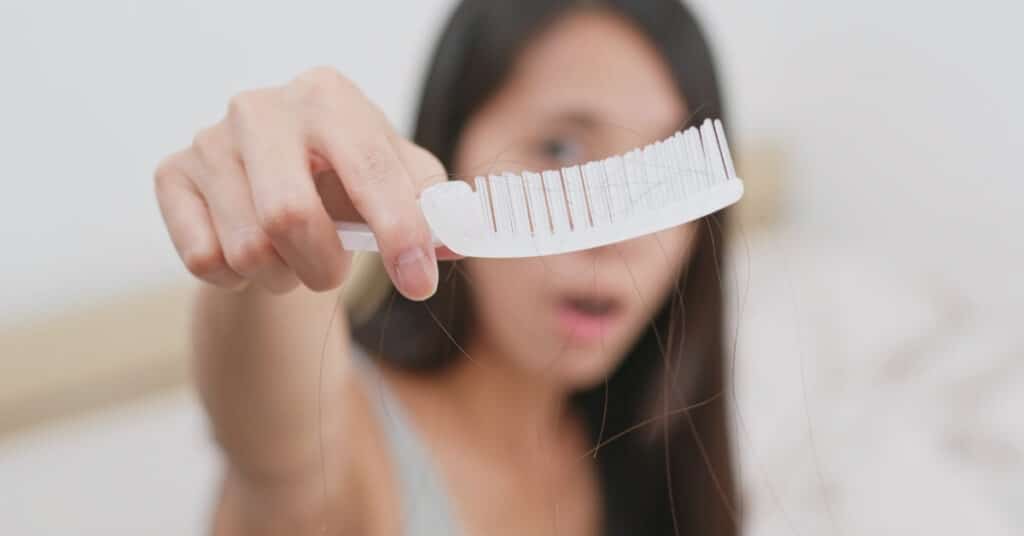When you think about hair loss, you commonly think that this is a problem that only men have to worry about. While hair loss is more common in men, women can still end up with this problem. It is believed that fewer than 45% of women have a full head of hair throughout their entire lives. However, just because hair loss is more common than you think in women, that doesn’t mean that it isn’t any less embarrassing. By reading on, you can learn more about this problem and what you can do about it.
Causes of Thinning Hair
Around 30 million women across the United States are impacted by hair loss. The most common cause for hair loss in women is female-pattern hair loss. Any woman can end up with this problem, but this is more commonly found in women who:
- Are over the age of 40
- Just having babies
- Taking certain medications or medical treatments like chemotherapy
- Typically use treatments that are harsh on the hair or frequently wear hairstyles that pull on the hair
- Going through menopause
There can be various causes for hair loss in women. In this section, you can learn more about these different potential causes.
Genetics/Family History
Easily one of the most common causes for hair loss in women is genetics as someone ages. Known as female-pattern baldness or male-pattern baldness, androgenic alopecia commonly occurs gradually and in predictable patterns. In women, the hair will start to thin along with the crown of the scalp. Then it may or may not progress from there.
Hormonal Changes/Medical Conditions
Women often experience permanent or temporary hair loss caused by various situations, including hormonal changes like pregnancy, childbirth, and menopause. Thyroid problems could also cause this. Medical conditions can cause hair loss, such as ringworm or alopecia areata, a problem with the immune system that leads to scalp infections and patchy hair loss.
Various Medications and Supplements
Hair loss can sometimes be a side effect caused by certain medications. These medications treat arthritis, cancer, high blood pressure, heart problems, depression, and gout.
Radiation Therapy to the Head
When you get radiation therapy to the head, you may lose hair, and it may not grow back in the same way it was before.
Stress
This can be especially true when it comes to a particularly stressful or traumatic incident. While this hair loss can be temporary, you may experience thinning hair for several months after the traumatic incident.
The Way You Treat or Style Your Hair
You may suffer from hair loss if you spend excessive time styling your hair or frequently wear hairstyles that tightly pull on your hair, like cornrows or pigtails. The type of hair loss caused by this is known as traction alopecia. You can also damage your hair from perms or hot-oil treatments, which can cause your hair to fall out. If these things lead to scarring on the scalp, this type of hair loss can be permanent.
Significant Weight Loss/ Poor Nutrition
When you lose a lot of weight, you can end up losing your hair. Some of this may be caused by poor nutrition, which can lead to hair loss.
Treating Hair Loss in Women
You have a few different treatment options for your hair loss. This section will take a brief look at these treatments.
Minoxidil
This is an FDA-approved ingredient meant to help with weight loss. Minoxidil can stimulate the growth in your hair as well as increase your hair growth cycle. This should be used for as long as you need to, as you may notice hair loss when you stop using this product.
Hormone Therapy
There are a couple of options here. One option is estrogen hormone replacement, which can be especially useful in women suffering from hair loss caused by menopause. Another option in this category is spironolactone, an antiandrogen medication that can suppress the production of androgens that lead to hair loss.
Finasteride
Finasteride is a medication that stops the body from converting testosterone into DHT, which can cause hair loss in women. This can be a highly effective approach that is taken daily.
Preventing Hair Loss in Women
Unfortunately, women’s genetic causes of hair loss (the most common cause) are not preventable.
You can do some things about the other types of hair loss, which can be preventable. Some things that you can do to prevent hair loss include:
- Ask your doctor or medical professional if any of the medications or supplements you are on is potentially responsible for your hair loss. They may find another solution that works for you, which doesn’t have the side effect of hair loss.
- Try to be as gentle as you possibly can with your hair. Use products like detanglers and try to avoid tugging at your hair when combing or brushing your hair. You should be especially careful when your hair is wet. Stick with a wide-toothed comb, as this can help potentially prevent pulling your hair out as you comb. It’s also a good idea to avoid using harsh treatments like curling irons, hot rollers, permanents, and hot-oil treatments. Lastly, be sure to limit the tension on your hair when styling it.
- Quit smoking, as this can be linked to hair loss.
- Protect your hair from sun exposure as much as possible.
Conclusion
The good news is that there are things that you can do about hair loss in women. By knowing how to prevent and treat this problem, you can get the solution to stop the issue from getting worse. When you are suffering from hair loss, this can have a significant impact on your self-esteem. By finding a solution to your hair loss, you can regain the confidence you need to take on the world.
If you are concerned with thinning hair and seek an effective hair loss treatment, contact EVOLVE patient care to get started!








